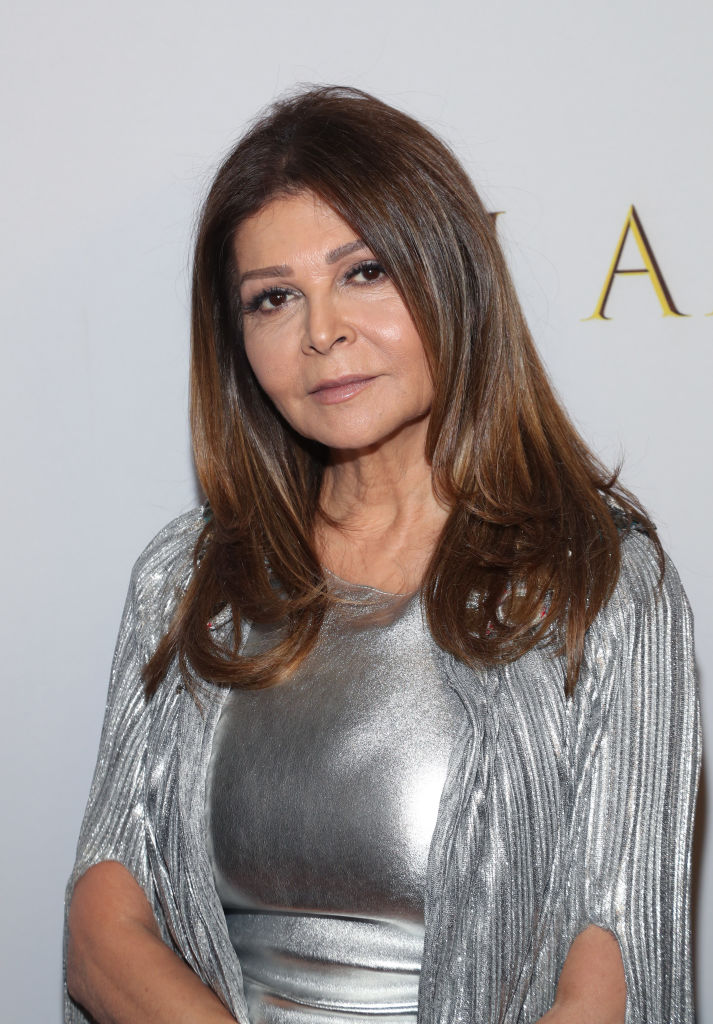
- Interviews
HFPA in Conversation: Sonia Nassery Cole Gives a Voice to the Voiceless
Sonia Nassery Cole’s father always told her that she could do anything. Afghan-born American filmmaker and human rights activist Nassery Cole tells HFPA journalist Patricia Danaher that attitude was embedded in her. From early on she had a fascination with movies. “It’s interesting how early in life we know what we want, but we don’t know what that is exactly. I didn’t know myself until my father told me years later this story.”
Nassery Cole used to go every Thursday to the cinema with her father. After they watched a John Wayne movie, his dad asked her opinion about it. Nassery Cole analyzed one scene throughout. “I guess I was looking directorially, even at eleven years old I wanted to visually see things.”
When she came to the United States she became politically involved and later, in 2002, founded the Afghanistan World Foundation. “I saw what happened to my country and I wanted to fight for the refugees of Afghanistan. That’s when I became politically involved by writing a letter at the time to the President of the United States, it was President Reagan. I wrote a nine-page letter crying in the middle of the pages with teardrops on my letter. When you are a teenager you think anything is possible and the President is going to call you, but I truly believed it with every essence of my body that he was going to read it and he was going to call.”
And he did. “From that day on I became a humanist and an activist on human rights and the refugee rights for Afghanistan as a teenager that kind of became my life goal and for a moment I forgot about filmmaking.”
But she found her passion for films again. In 2007 she directed the short documentary The Bread Winner. In 2010, her film The Black Tulip was Afghan’s Oscar Submission. “My mother, in the beginning, was not very happy with me and didn’t agree with me going to Afghanistan to make The Black Tulip. I lost my marriage in that process because I had this amazing drive and he didn’t agree with me going to Afghanistan, neither did my mother. But my father, I remember sitting and telling my mom and dad that I am going to Afghanistan and my father said to my mother, “she is never going to be at peace, she is never going to be happy, this is her dream. And if she dies like this, she dies like this, but she’s doing something she wants to do, so I am going to let her go.” And that meant a lot to me, to get my father’s permission to actually follow my dream and him knowing that I may not have come back alive.
Her most recent film, I Am You, tells the story of three Afghan refugees who flee the Taliban and seek refuge in Europe. “You would think I would learn my lesson and never do that again, but nobody was telling the stories of refugees and what was happening in Afghanistan. I decided to write the story, a true story again, of a young boy that came to Germany and just kept writing to me his story on Facebook. That took me back to Afghanistan, but by its nature, because it is a road trip from Afghanistan to Iran, from Iran to Turkey, Turkey to Greece, and Greece to Munich, the locations were different and I just shot a little bit of the film in Afghanistan.”
She wanted to open a door to a world people think they know but they really don’t. “I made it because I want to give a voice to voiceless people and show what’s going on behind the scenes.”
Listen to the podcast and hear what kind of childhood memories she has from Afghanistan; why she couldn’t watch cartoons that have sad moments; why she doesn’t want to share her refugee story yet; how she communicated with her family while they were separated; what president Reagan told her; what shaped her and why she thinks she is like 95 years old; how she describes past and present in Afghanistan; does she have hope for Afghanistan?; how she describes differences between women and men filmmakers; what her mother thinks about her career now; and what happened to her and her American crew in Afghanistan while they were about to film The Black Tulip.

